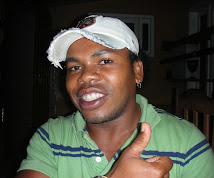(Spoken) (Falado)
Here's a little number we're
Yes, Sim,
give me a kiss to build a dream on, Dê-me um beijo pra construir um sonho,
And my imagination will thrive upon that kiss. E minha imaginação ficar muito bêm com esse beijo.
Sweetheart, I ask no more than this: Doce coração, eu peço nada mais do que isso:
A kiss to build a dream on. Um beijo para construir um sonho.
Yeah . . . Sim . . .
Give me a kiss before you leave me, Dê-me um beijo antes de você me-deixar,
And my imagination will feed my hungry heart. E minha imaginação dar comida para meu coração.
Leave me one thing before we part: Deixa-me uma coisa antes nos partir:
A kiss to build a dream on. Um beijo para construir um sonho.
When I'm alone with my fancies, Quando estiver sozinho com as minhas fantasias,
I'll be with you. Eu estarei com você.
Weaving romances, trançando romances,
making believe they're true. fazendo acreditar que sejam verdadeiros.
Babe, give me your lips for just a moment, Querida, dê-me os seus labios por apenas um momento.
And my imagination will make that moment live. E minha imaginação vai me-fazer viver esse momento.
Yes, give me what you alone can give: Sim, dê-me o que você só pode dar:
A kiss to build a dream on. Um beijo para fazer um sonho.
(instrumental break)
When I'm alone, Quando eu estou sozinho,
with my fancies, com as minhas fantasias
Yes, I'll be with you. Sim, eu vou estar com você.
Oh, weaving romances, Oh, trançando romances,
Ya da da da da, making believe they're true. Ya da da da da, fazendo acreditar que sejam verdadeiros.
Oh, lend me your chops for just a moment, Oh, empreste-me seus labios por um momento,
And my imagination will make that moment live! E minha imaginação vai me-fazer viver esse momento.
Give me what you alone can give: Dê-me o que apenas você pode dar,
A kiss to build a dream on! Um beijo para fazer um sonho.
And my imagination will thrive upon that kiss. E minha imaginação ficar muito bêm com esse beijo.
Sweetheart, I ask no more than this: Doce coração, eu peço nada mais do que isso:
A kiss to build a dream on. Um beijo para construir um sonho.
Mmmmm Mmmmm
Give me a kiss before you leave me, Dê-me um beijo antes de você me-deixar,
And my imagination will feed my hungry heart. E minha imaginação dar comida para meu coração.
Leave me one thing before we part: Deixa-me uma coisa antes nos partir:
A kiss to build a dream on. Um beijo para construir um sonho.
When I'm alone with my fancies, Quando estiver sozinho com as minhas fantasias,
I'll be with you. Eu estarei com você.
Weaving romances, trançando romances,
making believe they're true. fazendo acreditar que sejam verdadeiros.
Babe, give me your lips for just a moment, Querida, dê-me os seus labios por apenas um momento.
And my imagination will make that moment live. E minha imaginação vai me-fazer viver esse momento.
Yes, give me what you alone can give: Sim, dê-me o que você só pode dar:
A kiss to build a dream on. Um beijo para fazer um sonho.
(instrumental break)
When I'm alone, Quando eu estou sozinho,
with my fancies, com as minhas fantasias
Yes, I'll be with you. Sim, eu vou estar com você.
Oh, weaving romances, Oh, trançando romances,
Ya da da da da, making believe they're true. Ya da da da da, fazendo acreditar que sejam verdadeiros.
Oh, lend me your chops for just a moment, Oh, empreste-me seus labios por um momento,
And my imagination will make that moment live! E minha imaginação vai me-fazer viver esse momento.
Give me what you alone can give: Dê-me o que apenas você pode dar,
A kiss to build a dream on! Um beijo para fazer um sonho.
Version III, A Kiss to Build a Dream On (Louis Armstrong)
Version IV, A Kiss to Build a Dream On (Louis Armstrong)
Version V, A Kiss to Build a Dream On (Louis Armstrong)
Version VI, A Kiss to Build a Dream On (Manhattan Transfer)
Version VII, A Kiss to Build a Dream On (Louis Armstrong)
Version VIII, A Kiss to Build a Dream On (Wesla Whitfield)
Louis Armstrong is the most important figure in jazz history. He played innovative, powerful, yet technically brilliant solos that took jazz from a fun "dance" music to an art form. With his divine and unmistakable sound, he more-or-less invented the jazz solo, as well as the concept of "swing."
He took was born in New Orleans in 1901. He was raised in the tough part of town. On New Year's Eve, 1912, he fired his father's gun in celebration and was arrested and sent to the Colored Waifs' Home. There, he quickly excelled in music and was promoted to bugler. Afterwards, he played around town and on riverboats. He joined his idol, King Oliver. In 1922, two years after Oliver left for Chicago, he summoned Armstrong to join him and he did. In Chicago, they became the top group, and in the group, Armstrong met his second wife, pianist Lil Hardin. With Hardin's urging, he eventually left Chicago and joined Fletcher Henderson's orchestra in New York. There, he continued influencing countless musicians.
He returned to Chicago in the late 1920s and recorded a series of records for $50 a side. These recordings, the Hot Fives & Sevens, became revered and thoroughly studied by jazz musicians and enthusiasts through the ages. During the timeframe of these recordings, Armstrong started working with Earl Hines, a pianist who was Armstrong's counterpart on piano.
Along with his coronet/trumpet playing, Armstrong also influenced American vocals as well, with his interpretive and voicing innovations. Composer Cole Porter once said that the raspy Armstrong was his favorite vocalist. According to legend, while Armstrong was singing in the studio, his music fell off the stand. Armstrong looked at the producer in the booth, who signaled for him to continue, so he started "singing" a solo with nonsensical phrases. This is the supposed birth of "scat singing" which Armstrong invented and which has become a standard part of jazz singing (Ella Fitzgerald was a noted scat singer).
In the 1930s, Satchmo (a nickname that came from the word "Satchelmouth") fronted a big band and toured the United States and Europe. His popularity increased even more as he appeared in films, such as Pennies from Heaven with Bing Crosby.
During the 1940s, he gave up the big band in favor of a smaller group called the All-Stars. They were a New Orleans-style sextet that included, at times, Hines and trombonist Jack Teagarden. For the rest of his life, he didn't stray far from this setting. He toured the world, often under the auspices of the U.S. State Department. He rose to the top of the pop charts with his recordings of "What a Wonderful World" and "Hello, Dolly".
Louis Armstrong died of hart trouble in 1971. More than 20,000 came to pay respects and his funeral was televised.






